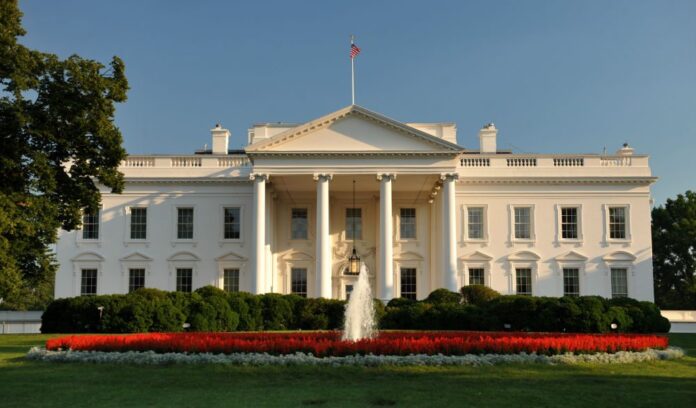President Donald Trump has agreed to grant “timely” licensing decisions to U.S. technology firms that want to sell components and services to Chinese vendor Huawei, the White House said in a statement.
The decision was adopted following a meeting between Trump and the CEOs of several U.S tech firms including Sundar Pichai of Google, Chuck Robbins of Cisco, Robert Swan of Intel, Sanjay Mehrotra of Micron, Stephen Milligan of Western Digital Corporation, Steven Mollenkopf of Qualcomm, and Hock Tan of Broadcom.
“They requested timely licensing decisions from the Department of Commerce, and the president agreed. The group was also optimistic about United States 5G innovation and deployments,” the statement read.
“The CEOs expressed strong support of the president’s policies, including national security restrictions on United States telecom equipment purchases and sales to Huawei,” the White House said.
Following a bilateral meeting with Chinese President Xi Jinping in Osaka, Japan earlier this year, President Donald Trump said that U.S. companies can sell their equipment to Chinese vendor Huawei as long as the transactions won’t present a “great, national emergency problem.”
U.S. Commerce Secretary Wilbur Ross recently confirmed that the U.S. government will issue licenses to local companies seeking to sell components to Huawei where there is no threat to national security.
In May, the U.S. Department of Commerce added Huawei to its Entity List, a decision that effectively banned the company from buying parts and components from U.S. companies without U.S. government approval. Under the order, Huawei needs a U.S. government license to buy components from U.S. suppliers.
Washington accuses the Chinese vendor of working with the Chinese government and its intelligence services, claims the Chinese firm denies.
When Huawei was added to the Entity List, firms including Google, Intel, Qualcomm and Micron halted shipments due to the restrictions. Huawei relies heavily on computer chips imported from U.S companies. Google also had supplied the company with its Android operating system.
UK government says it is not ready to define Huawei’s role in 5G deployments
In related news, the U.K. government set out plans to improve security standards across the telecoms sector for protection from cyber threats, but delayed an expected decision on whether Chinese vendor Huawei will be allowed to take part in the deployment of 5G networks in the country.
In a statement, Digital Secretary Jeremy Wright announced proposals for new legislation to enforce strong security requirements, as part of its telecoms supply chain review, but said the government was not yet able to make a final decision on Huawei’s case.
“To improve cyber security risk management, policy and enforcement, the review into the UK Telecoms Supply Chain recommends the establishment of a new security framework for the UK telecoms sector. This will be a much stronger, security based regime than at present,” Wright said.
“The review also concludes that there should be additional controls on the presence in the supply chain of certain types of vendor which pose significantly greater security and resilience risks to UK telecoms.”
However, the official said that the government is not yet in a position to decide what involvement Huawei should have in the provision of the U.K.’s 5G networks, mainly due to the decision by the U.S government to add Huawei to its Entity List.
“U.S. companies now have to apply for a license to export, re-export or transfer a specified range of goods, software and technology to Huawei and named affiliates, with a presumption of denial. On 20th May the U.S. government issued a 90 day Temporary General Licence that authorises transactions in relation to specified areas. These measures could have a potential impact on the future availability and reliability of Huawei’s products together with other market impacts and so are relevant considerations in determining Huawei’s involvement in the network,” Right said.
“Since the U.S. government’s announcement we have sought clarity on the extent and implications but the position is not yet entirely clear. Until it is, we have concluded it would be wrong to make specific decisions in relation to Huawei. We will do so as soon as possible,” he added.

